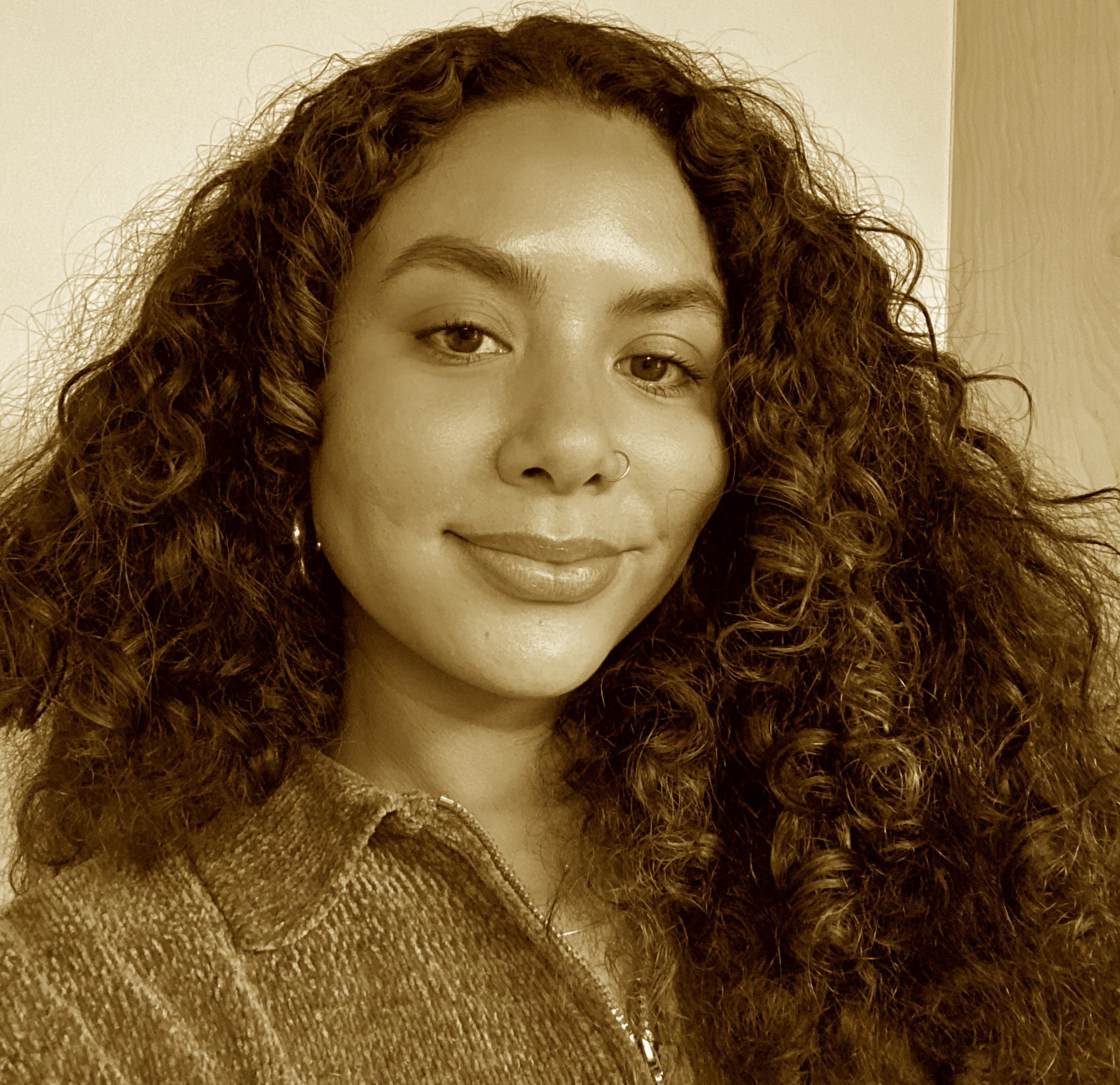
Brittany Chavez: Make vulnerability your leadership style
The founder of Shop Latinx has an unusual set of superpowers.
When Brittany Chavez launched Shop Latinx in 2016, she didn’t yet consider herself a founder. She didn’t think of herself as a leader, or even as part of the tech world. She had worked in the entertainment industry in L.A., but couldn’t seem to get past assistant-level jobs, so she quit and started driving for Uber.
Then, inspiration struck.
“I remember one day—it's so clear—I work a 10-hour Uber shift, I come home, I'm so tired, I take a shower, hop into bed,” she told Free Radicals. “When you're a founder, you feel like sometimes you're steering the ship, it's just intuitive. You don't know why you're doing it, or how you're doing it, you just feel called to do it. That's how I felt when I opened up my laptop and I started looking up Latinx-owned businesses—any way you can spell it, Latino, Latina, Latinx, Hispanic, whatever. I didn’t see any directories, I didn't see anything to help these small business owners, especially ecommerce.”
Chavez was seeing Latinx businesses on her social media feeds, particularly on Instagram, but she couldn’t find a central place to find more, or to shop from several at once. “I was so inspired by other communities taking the initiative to create their own systems like directories, to amplify their communities, and I was so happy to patronize and support them,” she said, fondly recalling a database of Black-owned restaurants and food businesses in L.A.
She started the Shop Latinx Instagram account that night, gathering Latinx makers, creators, businesses, and culture into one feed. “It got a lot of traction, and it really filled a void within this community,” she said. “Then, with a collective of young women, we created a directory, and started highlighting the stories of Latinx creators.”
Five years later, Shop Latinx is an online marketplace and platform selling products from more than a dozen different brands owned by women of color. The company landed pre-seed funding this spring. Chavez has experienced founder pains first-hand, and now leads a team of seven.
Chavez is the first to say that she’s not a conventional leader, and it’s an identity she has learned to embrace. Mental health, well-being, and emotional intelligence are the foundation of the culture she’s building for her team. She considers the vulnerability she brings to leadership, and the ability it gives her to connect with employees—and consumers—to be a strength.
Understanding people has given her insight into a huge and poorly served market. About one-fifth of the U.S. population identifies as Latinx, and it’s one of the fastest growing demographics in the country, with a projected $1.9 trillion in spending power by 2023. And yet, corporate attempts to speak to the Latinx market are often tone deaf at best.
“Even when I go on other marketplaces, and type in ‘Latina,’ I’ll see a shirt with a taco on it, and it says, like Hablo Spanglish,” Chavez says. “Why are we reduced to these stereotypes? There's a duality to us. I don't wake up and turn on the novellas, listen to cumbias, and then start dancing. We’re not just these caricatures.”
Sherrell Dorsey spoke with Chavez about entering the tech world from a non-traditional starting place, the founder journey, and why everyone should go to therapy.
I want to hear about how you took Shop Latinx from being an Instagram account to building an entire platform. When did you start to think of yourself as part of the tech industry?
In late 2018, I got into my first accelerator program in L.A., after getting so much consumer validation for the need to create a one-stop shop for these brands. It was called Grid 110.
Then six months later, I was accepted into the TechStars program. That's when we started building the proprietary tech. Currently, Shopify enables marketplaces but it's up to about eight brands, so people will go the wholesale route. We don't hold any inventory. I knew that our audience was bigger than that.
When we launched we made around $20,000 our first week. There was zero ad spend, it was all through Instagram and my personal Twitter. It’s been a journey of being committed to the vision and really listening to the consumer and asking them what it is they want. There are employees who work for the company, but for me, as a founder, I work for my consumer. Without them, I don't have a business.
How are you thinking about this marketplace, who is your customer?She's values driven, she is intentional with where she spends her money. Storytelling is so big to her, and she wants to see herself reflected. There's not one marketplace that really speaks to this Latina consumer in a way that's authentic.
We currently have over 600 products that are hand-picked with our Latina consumer in mind. Shop Latinx is a brand-forward, trend-forward, curated marketplace of beauty, home, apparel, and accessories products that are made with intention. These products are one-of-a-kind and made by Latinx people and women of color.
People resonate with Shop Latinx because we understand that we're a nuanced culture. The West Coast demographic is so different from the East Coast, Caribbean, Afro-Latinx population. Highlighting what makes us different and celebrating that—and also our similarities—has been our advantage with gaining the trust of this consumer.
In 2016, I traveled to my parents’ home countries. They're born and raised in L.A., but our families are from Nicaragua and Guatemala and there's always this disconnect, growing up hella Americanized and not really around other Latinx people. So I came home with this newfound pride.
In the U.S. alone, Latinx people have $1.5 trillion in spending power. What's the point, if that money is not redistributed back into our communities?
There’s a real stereotype about who belongs in tech, and you’re out here as a Latina talking about leadership and community in this very authentic way that is really different. How do you navigate that?
I just can't lie. I'm very brutally honest, maybe sometimes a little too honest. I was talking to Anna Barber, the managing director when I was at TechStars, about this. I called her crying, saying, I don't know what I'm doing. I don't know how to be a boss. I have so many questions. She told me, Your vulnerability is your superpower. Make vulnerability your leadership style.
Emotional intelligence—EQ—is such an overlooked quality. If I wanted to learn how to code, I could do that, but you can't teach empathy. Or you can try to, but, it's hard. I'm sure it's harder for some people to be empathetic and vulnerable than it is for them to study a subject, or go to a coding school.
Every day we have morning stand-ups with the team. And on Mondays and Fridays, we do a check-in. Are we green, yellow, or red? How are we feeling today? I'll tell them, I have anxiety because I don't know what's happening with marketing. Can we have a one-on-one? I’m letting the team understand that I'm human.
There was one time where we had a product stand-up, and in the middle of it, I just started crying. I was like, Sorry, y'all this is really hard. Not only am I learning how to manage this team, and be a solo leader, I'm in the process of grieving some stuff. And so we went from talking about products, to the team coming together and talking about things that we're grateful for. That was really cool to me. I wasn't expecting to hear them talk about their job, but they were like, I'm grateful to have a boss who is so vulnerable and allows us to be vulnerable. I'm so grateful for my job because I'm tied to the mission.
This is my experience and my experience has molded me into this person that I am today. And it's gotten me this far. So why suppress it? If anything, that's my strong suit.
I come from this very unconventional background. I dropped out of college. I didn't know what tech was until three years ago. And yet I am still rubbing elbows with kids from Stanford, and I saved myself $200k. I can leverage a free app, Twitter, to meet people I need to meet, or to promote myself. When you weren't born equipped with the tools, you create your own. And that's what I did.
You don’t have a traditional tech background, and you walked into these spaces with such a clear mission around representation. How did that play out for you in your accelerator experiences?
TechStars and Grid 110 are the best things I've ever done in my life. Hands down, I got more learning and training in those six months combined than I ever did in college, in elementary school, period. Our school system teaches you in a way that is just so standardized. So many of us learn so differently, and we think we think there's something wrong with us when there's really something wrong with this system.
I was front-row asking all the questions. I've never been in an environment that really fostered curiosity—I'm learning that I'm a very naturally curious person. I love asking questions. I feel like maybe I never cared enough to ask a question, and now I do.
With TechStars I was just so eager, and then you're working on something that you're passionate about, and that's yours. I put 110% into everything I did in TechStars. My demo day, I fucking killed that, I bodied my pitch. It's because of the training that I got. The first two weeks they throw you into something called mentor madness, where you're meeting like 100 potential mentors, and then you end up picking five to seven. One of those mentors is now, to this day, my official advisor, Glenn Frese. He’s a former VP of Universal Music, and he's been helping me so much. TechStars has made so many introductions to investors.
Can you speak to some of the ebbs and flows of building your company, getting used to this founder journey?
It has been a journey for sure. I wouldn't trade it for anything in the world, but it has been freaking hard, man. My parents were teen parents, but I also think the way I grew up has become a superpower. I didn't have money and resources, so my superpower became marketing and branding and networking and building meaningful relationships with people on a human level.
I’ve had to finesse and choose my way to get here, and that's all thanks to this cultural IQ that I have. Leveraging my ability to storytell has really helped me, but the past four years have been, if I had to choose a word, unstable. Starting January of this year is the first time that I've ever been on salary in my life, and I just turned 30 years old. Prior to that, I never had a position higher than an assistant or an intern. I would work on the Shop Latinx Instagram and then attend a poetry night because there was a poet I wanted to meet who I wanted to feature on the feed, but I also wanted to build a relationship with her.
I was a leader of this community on Instagram, but in terms of leading a team, I'd never had to do that. I went from being a single founder to then having a co-founder, and then going back to now being a single founder again, and having a team and learning how to delegate.
I'm ever learning, ever evolving. I'm just embracing it, because it's such a privilege. Not too many Latinas, women of color, Black women get this opportunity. I've always had to work for people. So that's how I see it—yeah, these times are challenging, but what a blessing it is to be able to create my own path. Investors gave me—me—money because they believe in me, in this dream that I had. They see the vision, and they truly believe that I, Brittany Chavez, can make them returns. That's something that I have to remind myself not to take for granted.
My lead investor [Shop Latinx hasn’t announced who this is yet—stay tuned.], I used to listen to his podcast a couple of years ago, and that's when my apartment was unfurnished. I had no AC. I had to walk to do laundry. And I would listen to him in my headphones, and I was like, He's gonna invest in me one day. And then two years later, I just had my one-on-one with him. He's my lead investor now. He told me, I’m just as excited about Shop Latinx today as I was when I first heard about you, and when I first met you. I think what's also cool about being a founder is that you have so many serendipitous, full-circle moments. It's more cherished, when you come from an unconventional background, like you and I do. We have to really fight to earn our seat at this table. It's really difficult.
I want to dive into the transition from having a co-founder to now being solo. I’m a solo founder, and sometimes I wonder if I had started The Plug with a friend, would it have been an easier ride? Talk to me about how you ultimately decided to do this alone.
I’m trying to choose my words with intention. When a company is your idea, you don't want to compromise the vision. A co-founder relationship is like a marriage. It truly is. I think there's a lot of steps that potential co-founders need to make prior to getting into that co-founder marriage. You need to take everything into consideration, on both a personal and professional level, because you're essentially tied to them.
So much of your company, as a founder, is an extension of you. In order for your company to be great, you need to be good—you need to feel aligned, you need to go into those meetings with a clear head, and without external factors affecting your thought process, or your creativity. What I ultimately would suggest to founders is to surround yourself with people who want to genuinely see you thrive, and to see you happy. That could be a co-founder, that could be a social media manager. As founders it's our responsibility to make sure that we’re protected emotionally, physically, spiritually, mentally, and that your team is too. That you create a culture of wellness and collaboration, but also healthy feedback and critique, and mindfulness of people's emotions. Those are some tools that have really helped me.
I think, being a solo founder, there's less compromising and explaining that you have to do. Seeking advice from your advisors, your mentors, the brands in the marketplace, your core consumers, I genuinely think can be enough for a solo founder. I don't really know why investors push solo founders to get co-founders because, just like in the real world, sometimes you're better off and happier when you're single.
How do you get back to that center core that reminds you of your why? That reconnects you to building the company that you set out to build?
Self-awareness. What founders should probably ask themselves is, Are you seeking a co-founder to make them a shield out of codependency and lack of trust of self? In retrospect, that was probably it for me. I had this lack of confidence. I have evolved so much and I chalk it all up to therapy. Therapy has been my answer and my key to success.
Everything that we do as adults is a result of our childhood, and I think for a lot of people of color, there's a lot of unresolved trauma that starts to leak into the way that we form relationships, or the way that we lead. Therapy has opened my eyes to so much, into so many of these behaviors that I need to shed to be the best me I can be.
I want to be the one to break these generational curses of trauma, this scarcity complex, this relationship with money. The money in my business bank account is unfathomable. I never learned how to have a healthy relationship with money—it was always rooted in fear. I was so complacent, working 45 hours a week on Uber making $600 a week and learning how to stretch it. I'm renting a room. I'm Ubering. I'm having people take me on dates so that I don't have to spend money on food. And I'm just so complacent. I'm finessing and maneuvering with the little money that I had. And then two years later, I have money in my bank account, and I don't trust myself.
These investors trust me, but the first time I expensed a meal, a business outing, I was so scared because I felt like once I made that first transaction that brought me joy, I was going to just dive off the deep end and blackout and spend money. Therapy has really taught me to trust myself more.
Therapy is the answer to everything.
It's this never ending cycle of revisiting pain that you thought you recovered from or you're putting a blind eye towards. Therapy is really hard. But in order for you to live your best life and for the people around you to feel confident with you as their leader, you’ve just got to do it.
You created a marketplace because you saw something that was missing and you filled it. What else is missing?
I've been really into adults exploring their inner child. The other day my best friend came over, we made a charcuterie board and then we made vision boards. It was just so fun to cut from magazines and to feel like a kid again.
When we grow up, what's normalized is alcohol and drugs—that's what numbs us. I dream about being a kid on my Razor scooter, and being so creative and playing with mud and chopping up earthworms and putting glitter all over my face. As an adult I miss that so much, and I think there’s a need for a healthy space where there's no alcohol, it's just a place for adults to play.
Don't you remember being a kid and going on the playground and you don’t know names—it’s just vibes, like, Hey, you want to play with me? And then y'all are just like playing? I miss that. So I want to say that's something that's missing. It would be really dope to see a playground for adults.
This was a conversation between Sherrell Dorsey and Brittany Chavez, edited for length and clarity by Annaliese Griffin and Rachel Jepsen. Reply to this email if there's someone you'd like to see us interview in the future.
Find Out What
Comes Next in Tech.
Start your free trial.
New ideas to help you build the future—in your inbox, every day. Trusted by over 75,000 readers.
SubscribeAlready have an account? Sign in
What's included?
-
Unlimited access to our daily essays by Dan Shipper, Evan Armstrong, and a roster of the best tech writers on the internet
-
Full access to an archive of hundreds of in-depth articles
-
-
Priority access and subscriber-only discounts to courses, events, and more
-
Ad-free experience
-
Access to our Discord community
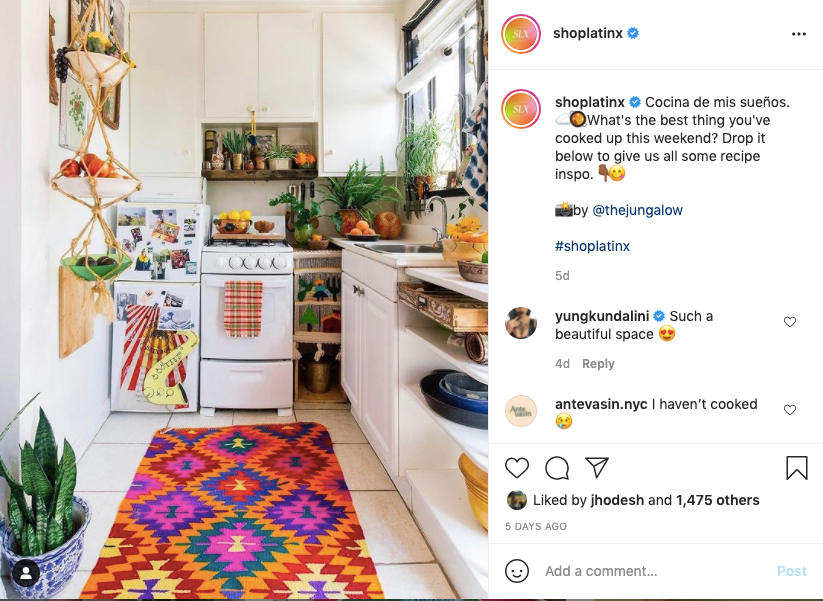
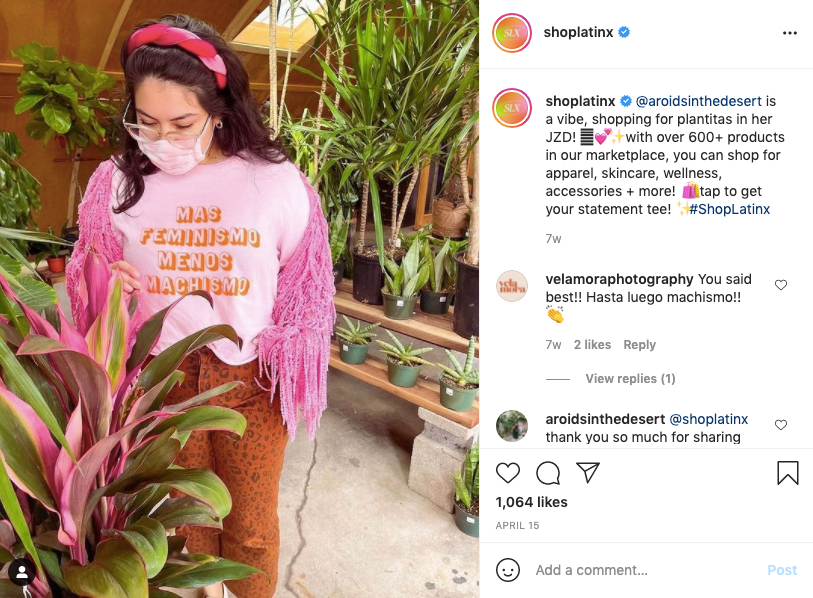
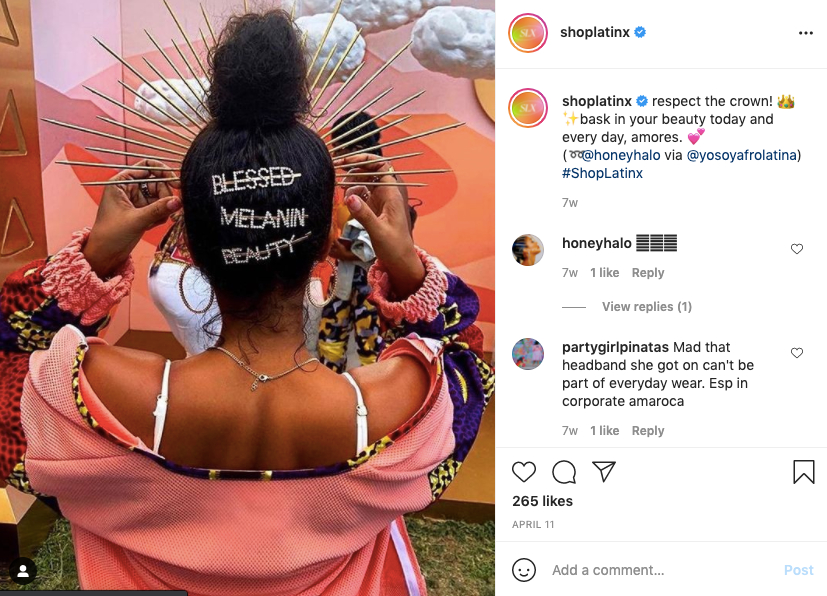
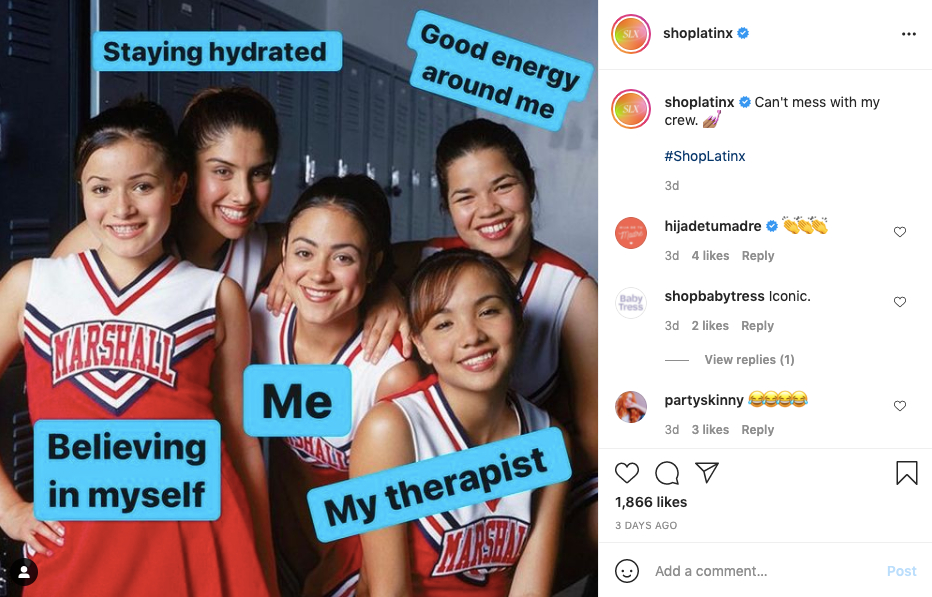


Comments
Don't have an account? Sign up!
never seen my story in tech world before... thank you for sharing Brittany's inspirational story... never saw myself as a founder or believed it was path that was "allowed" for me, people like me... my heart feels light and open. thank you Brittany for being a possibility model... 🥺🌱